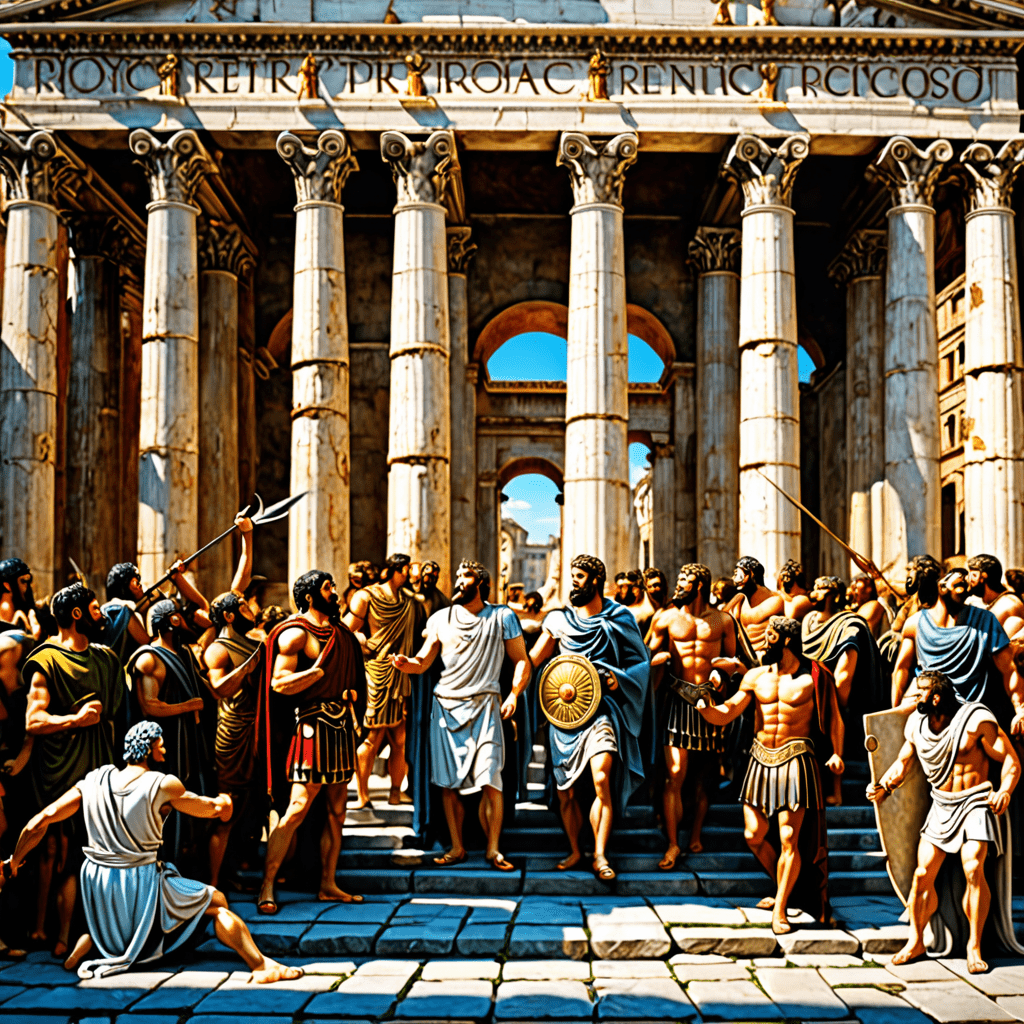The Mythological Origins of Roman Political Systems and Structures
What role did Roman mythology play in shaping their political systems?
Roman mythology had a profound influence on the development of Roman political systems and structures. The Romans believed that their city was founded by the twin brothers Romulus and Remus, who were raised by a she-wolf. This mythological tale not only gave Rome its legendary origins but also instilled a sense of divine right and destiny among the Romans. The idea that the city was destined for greatness influenced how rulers and political institutions were perceived in Rome.
How did Roman gods and goddesses impact their governance?
The Romans worshipped a pantheon of gods and goddesses who were believed to have a direct influence on every aspect of life, including governance. For example, Jupiter, the king of the gods, was associated with justice and order. This belief in divine oversight and intervention shaped Roman political practices, such as the offering of prayers and sacrifices before important government decisions were made. The presence of various deities in Roman mythology also influenced the naming of planets, which are named after Roman gods.
What were the key political structures derived from Roman mythology?
Roman political structures were deeply intertwined with their mythology. The Senate, for instance, derived its name from the Latin word “senex,” which means old man. This was a reference to the council of elders in Roman society. Additionally, the title of “emperor” originated from the term “imperator,” which initially meant a successful military commander chosen by the gods. The concept of a republic, where citizens had a say in governance, was also influenced by the belief that the success of Rome was rooted in the will of divine powers.
How did myths contribute to the symbolism of Roman political power?
Mythology played a crucial role in symbolizing and legitimizing Roman political power. Emperors often used imagery from Roman myths to portray themselves as divine or favored by the gods. For example, Julius Caesar claimed descent from Venus, the goddess of love and beauty, which enhanced his political prestige. The adoption of mythological symbols and narratives created a sense of continuity and authority in Roman political institutions, reinforcing the importance of faith and tradition in the governance of the Roman Empire.
FAQ: Mythological Origins of Roman Political Systems and Structures
What role did Roman mythology play in shaping political systems?
Roman mythology greatly influenced the political systems and structures of ancient Rome. The Romans believed their city was founded by Romulus and Remus, the twin sons of the god Mars. This myth provided a divine justification for the establishment of Rome and underpinned the belief in the city’s unique destiny and power.
How did Roman gods and goddesses influence political decisions?
The Romans attributed political events and decisions to the influence of their gods and goddesses. For example, Jupiter, the king of the gods, was seen as the protector of Rome and was consulted through auspices by Roman leaders before making important decisions.
What was the significance of the Roman Senate in mythology?
The Roman Senate, a key political institution, had its roots in mythology. According to legend, the first king of Rome, Romulus, established the Senate as a council of elder advisors. The Senate’s authority was believed to be derived from the wisdom and guidance of the gods.
How did myths of heroes like Aeneas impact Roman political identity?
The myth of Aeneas, a Trojan hero who fled the fall of Troy and eventually settled in Italy, played a crucial role in shaping Roman identity. Aeneas was considered the ancestor of Romulus and Remus,



